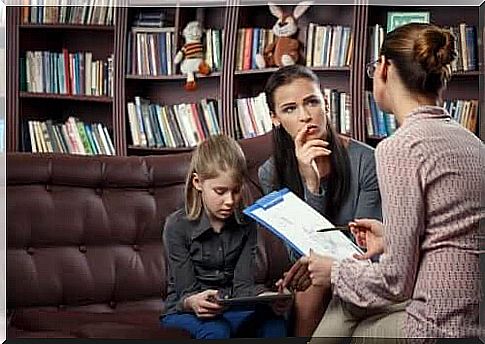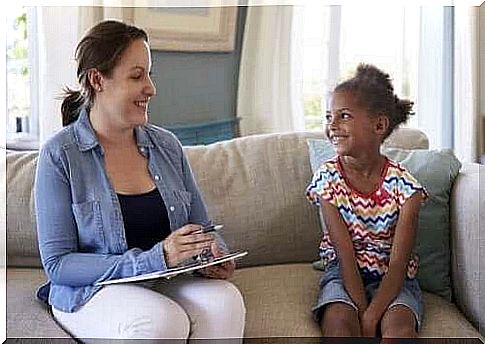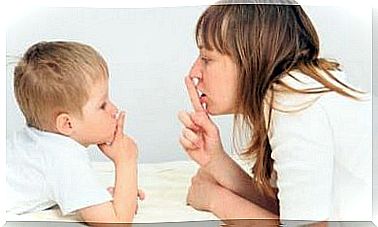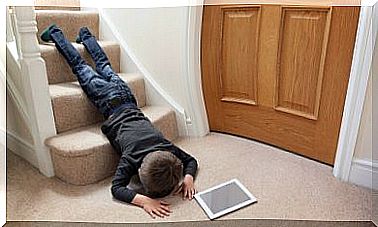When To See A Child Psychologist?

Parenting does not come with an instruction manual. Even if we try to do our best, we can sometimes feel overwhelmed and need to ask for help. Seeking a child psychologist can give rise to doubts and fears, but it is often the right decision.
What is normal?
At some point, almost all parents wonder if their children’s behavior is normal. Is it something transient or should you worry? Do not worry. It is important to know that children go through different phases of characteristic behaviors. These help them to develop as human beings.
For example, when children are two years old , they enter a phase of negativism and many have outbursts of rage, which is completely normal. Similarly, it is common for children up to the age of seven to have difficulty staying focused for a long time. Nor can they regulate their behavior if they are happy.
That is, certain behaviors or fears may be completely normal at a certain age. They will cease as the baby grows and matures. On the other hand, the child’s personality also plays a crucial role. An introverted child will enjoy being alone, while a more restless child will require more stimulation.
When to see a child psychologist
Before we identify a behavior as problematic, we must clearly identify whether it is part of a normal stage of development, or whether it is part of the child’s personality.
Sometimes it is also possible that it is we parents who cause the problem and not the child. We can be too demanding or overprotective of our child. This gives us an unrealistic view of our children. If this happens, a psychologist’s intervention can help orient the parents and resolve the situation.

Strong to seek help
Unfortunately, there is still some taboo about seeing a child psychologist. Some parents may think it is not really necessary or may see it as a sign of weakness.
Seeking professional help does not mean that you are a bad parent or that you have done something wrong. On the contrary, it just shows that you want to give your child the best upbringing and childhood you can.
There are certain behaviors that can certainly correct themselves over time. When there has been a change in the child’s life, such as a divorce or if he or she has moved to a new school, the child may only need some time to adjust to the new situation. However, it is important to pay attention if the adjustment does not take place.
In the same way, if we deem it necessary, we can consult a child psychologist to help the child get through the adjustment. Sometimes preventative measures are the best medicine, and having professional support can prevent the circumstances from affecting your child in a negative way or overwhelming him or her.
However, we must remember that there are situations where it is better to act as soon as possible. Otherwise, the symptoms may get worse or chronic. The child may then miss part of their childhood as long as we do not offer a solution.

Important points to keep in mind
The most important parameters to be aware of when deciding whether to consult a child psychologist are the following:
- You see behaviors that are not normal. Either because the child exhibits very different behaviors from the rest of the children of their age or because the behavior changes radically from one day to another. It is therefore important to know the children’s different stages of development and even their own child’s personality.
- Time. If an abnormal behavior or mood persists for several months, one should start considering seeking professional help. This may mean that the child is unable to cope with the situation on his or her own and that he or she needs help.
- It is seen that it affects the child’s daily life. If a behavior, fears or an emotional state significantly affects the child’s daily life and well – being, it is a sign that you must seek help. If the impact is serious, it is best not to wait, even if it has not been long.
- If you see physical symptoms without a medical explanation. If the child starts to have headaches very often, stomach pain or skin problems without medical motivation, it may be that you are facing the somatization of an emotional problem.









